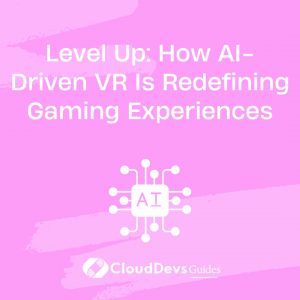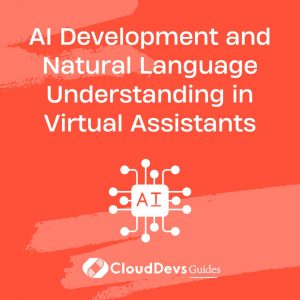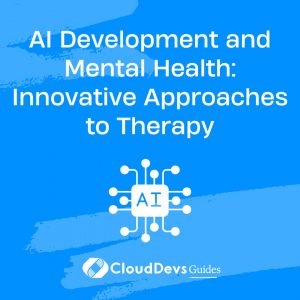Level Up: How AI-Driven VR Is Redefining Gaming Experiences
In the fast-paced world of technology, the convergence of artificial intelligence (AI) and virtual reality (VR) has opened up a realm of possibilities that are reshaping industries and captivating users. In this edition of The Valley Letter, we’ll dive deep into the fascinating fusion of AI and VR, exploring how these cutting-edge technologies are creating immersive experiences that have the power to transform everything from gaming to education and healthcare.
1. The Marriage of AI and VR
AI and VR, on their own, are remarkable technologies. AI enables machines to think, learn, and make decisions, while VR offers a simulated, immersive environment that can mimic the real world or transport users to entirely new realms. When these two forces combine, magic happens.
Example 1: Gaming
Imagine stepping into a virtual world where the characters adapt to your every move and decision. That’s exactly what AI-powered VR gaming delivers. Games like “Half-Life: Alyx” by Valve use AI algorithms to create dynamic, lifelike interactions. The characters respond realistically to your actions, enhancing the feeling of presence and engagement.
Example 2: Healthcare
In the healthcare sector, AI-driven VR is revolutionizing patient treatment and therapy. Companies like Oculus and Osso VR are developing VR platforms that leverage AI to simulate surgeries and medical procedures. This provides medical professionals and students with a risk-free environment for training and skill enhancement.
Example 3: Education
For educators, AI-driven VR promises a new era of immersive learning experiences. Platforms like EngageVR use AI to personalize educational content based on individual learner profiles. This adaptive approach ensures that each student receives a tailored education, enhancing retention and understanding.
2. The Data Behind the Magic
At the heart of AI-driven VR lies a wealth of data. AI algorithms analyze user behavior and preferences to create personalized experiences. This data-driven approach is a goldmine for early-stage startup founders and tech leaders, as it allows for targeted marketing and product development.
3. AI and VR in the Business World
The potential applications of AI and VR extend far beyond gaming, healthcare, and education. In the business world, these technologies are being harnessed for remote collaboration, virtual conferences, and even employee training. Startup founders and VC investors should keep a close eye on these emerging trends as they have the potential to disrupt traditional business models.
4. Challenges and Ethical Considerations
While the possibilities are thrilling, AI-driven VR also raises ethical concerns. Privacy, data security, and the potential for addiction are just a few of the challenges that need to be addressed as these technologies evolve.
Conclusion
AI development and virtual reality are transforming the way we interact with technology and the world around us. From gaming to healthcare and education, the immersive experiences created by these technologies have the potential to revolutionize industries. As early-stage startup founders, VC investors, and tech leaders, it’s essential to stay at the forefront of this technological revolution, harnessing its power to outperform the competition.
Further Reading:
- How AI and VR Are Transforming Healthcare – https://www.healthcareitnews.com/news/how-ai-and-vr-are-transforming-healthcare
- The Future of Education: AI and VR – https://www.edutopia.org/technology-integration
- AI and VR in Business: What You Need to Know – https://www.forbes.com/ai-vr-business-transformation
Table of Contents









